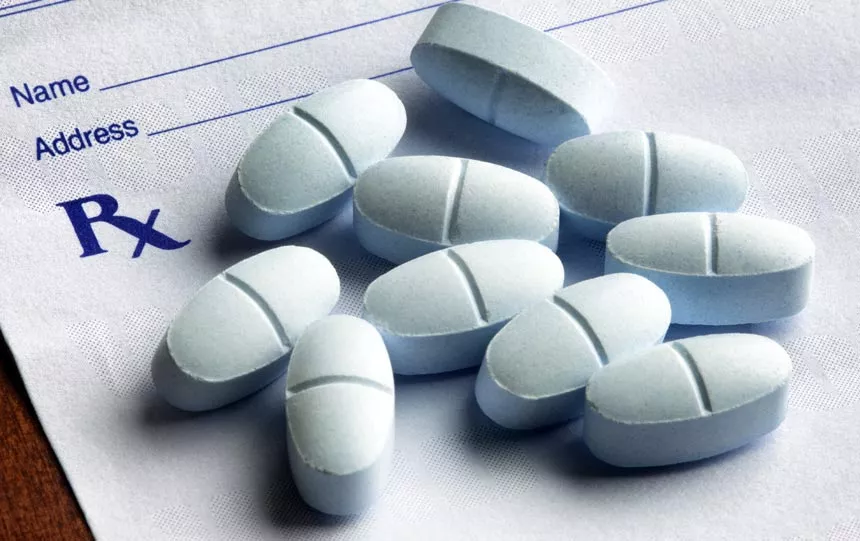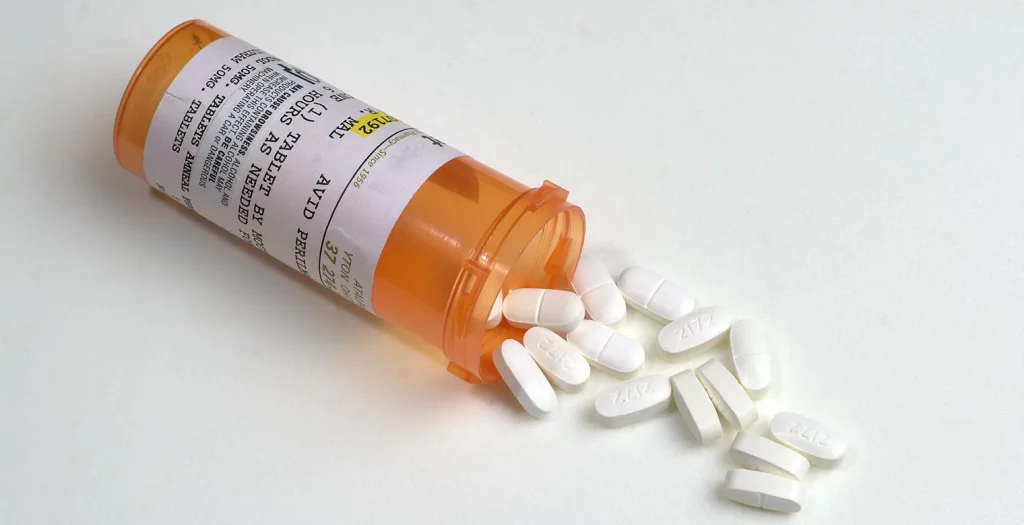Hydrocodone and other prescription opioids are misused by an estimated 11.5 million people in the U.S. Hydrocodone is commonly used to treat severe and chronic pain such as that caused by injury and surgery but carries a high risk for dependence and addiction — especially when misused or used for longer than needed.
Keep reading to find out all about Hydrocodone addiction symptoms and get the best ways of managing withdrawals as well as find top resources for assistance!
What is Hydrocodone?
Table of Contents
- What is Hydrocodone?
- Opioid Mechanisms of Action
- Reasons for Hydrocodone Misuse
- What are the Symptoms of Hydrocodone Abuse?
- Typical Symptoms of Prescription Drug Abuse
- The Typical Effects of Hydrocodone Abuse
- How to Spot Signs of Hydrocodone Addiction
- Treating Hydrocodone Addiction Symptoms
- Forms of Effective Treatment for Hydrocodone Addiction
- Inpatient vs Outpatient Programs for Substance Use Disorders
- Medically Supervised Detox and Managing Withdrawals
- Hydrocodone and Dual Diagnosis Treatment Options
- Freedom from Hydrocodone: Found Here
- Medically Reviewed By
Hydrocodone is a semi-synthetic opioid analgesic and antitussive (cough suppressant), which is used to relieve moderate to severe pain. It is a member of the phenylpiperidine class of opioids. It was first prepared in 1914 in Germany by two chemists working for Bayer, who were attempting to produce codeine synthetically.

It comes in multiple forms including tablets, capsules, solutions, suspensions, and suppositories. It can be swallowed, injected, or snorted depending on the method of administration, but smoking it has become rare because of its addictive properties. When taken through the mouth, it takes effect within 30 minutes and lasts for 4 hours. When injected intravenously or intramuscularly, it often takes effect within 5 minutes with a shorter duration of action lasting between 1–2 hours.
Opioid Mechanisms of Action
Hydrocodone is a competitive inhibitor. This means that it slows down the body’s pain signals by competing with the transmitter substance that the body creates to transfer those signals to the brain. The result is that you have less pain resulting from your injury. The side-effect of consuming hydrocodone is that it also creates a feeling of well-being and euphoria that makes people want to take even more of it.
While many people might start off using hydrocodone as a treatment for moderate pain, they could easily descend into addiction. Knowing the signs of hydrocodone addiction can help you determine whether you or a loved one needs help in the form of professional addiction treatment.
Here are common signs and symptoms of substance use disorder and drug abuse, along with steps you can take to get treatment today.
Reasons for Hydrocodone Misuse
People abuse hydrocodone or other drugs for a number of reasons, such as to experience euphoria, or to mask symptoms of underlying physical or psychological health problems and mental disorders like anxiety and depression. The treatment process addresses these instances.
Substance abuse, especially prescription drugs, happens when people use the drug without a prescription, use the drug in ways other than directed, or use the drug for recreation instead of for treating pain. Hydrocodone combined with other substances can be exceptionally dangerous.
Hydrocodone abuse can be devastating. In 2010, more than 14,800 people died from prescription painkiller overdoses, making it the leading cause of prescription drug overdose deaths.
According to an analysis by the Centers for Disease Control and Prevention (CDC), deaths involving hydrocodone tripled between 1999 and 2006, when they peaked at 16,849 deaths among 19,332 total deaths related to opioid analgesics. Prescriptions for opioids have decreased since 2007 but overdoses remain high.
What are the Symptoms of Hydrocodone Abuse?
Beginning with the pain that occurs after surgery or an injury, hydrocodone relieves the patient of physical discomfort by binding to certain receptors in the brain, reducing the perception of pain by interfering with nerve impulses sent through the spinal cord to other parts of the body.
When taken as directed by your doctor, hydrocodone relieves pain without causing severe drowsiness or confusion. However, when an individual uses this drug recreationally or consumes too much at once, they are more likely to suffer
Hydrocodone is a narcotic prescription painkiller that releases endorphins in the brain when taken. It’s most commonly prescribed for relief of moderate to severe pain, and it can be habit-forming, like all opioids. The drug is similar to morphine and codeine, and though hydrocodone is an opioid, it is not as powerful and has less potential for addiction.
Signs of Hydrocodone abuse may not always be as obvious as people think. Substance abuse may not begin as a desire to develop a prescription drug addiction. The truth is that for the most part, drug abuse is the result of underlying problems.
Opioid Dependence Often Develops After Major Injuries
A person may be trying to treat severe pain with prescription painkillers. Unchecked, however, Hydrocodone use can wreak havoc on a person’s life. So how do you spot the telltale signs of hydrocodone abuse?
Personal or professional responsibilities start to fall to the wayside as Hydrocodone misuse increases. There is a multitude of indicators that represent signs of Hydrocodone abuse one may keep an eye open for.
It’s difficult to be sure about some of these signs of hydrocodone addiction because they can seem innocuous at times.
Typical Symptoms of Prescription Drug Abuse

Below are some of the physical and behavioral symptoms associated with prescription drug addiction and excessive Hydrocodone use.
- Dizziness
- Drowsiness
- Confusion
- Nausea
- Vomiting
- Fever
- Constipation
- Dilated pupils
- Clammy skin
- Itchy skin
- Constricted pupils
- Blurred vision
- Changes in weight
- Slowed heart rate
- Difficulty breathing
- Nasal congestion
- Tightness in chest
- Anxiety
- Depression
- Insomnia
- Muscles aches
- Seizures
- Drug cravings
- Other mental illness
- Withdrawal symptoms
Treatment for hydrocodone abuse means more than just treatment for the symptoms of abuse.
The Typical Effects of Hydrocodone Abuse
Drug abuse has a substantial stigma attached to it. Hydrocodone abuse is dangerous and can lead to increased tolerance, physical reliance, and addiction. Hydrocodone use for longer than a few weeks can cause tolerance, which is when people need higher doses of the drug to achieve its effects.
A person who starts using higher amounts of hydrocodone after becoming tolerant can then become physically dependent, which is characterized by drug cravings and Hydrocodone withdrawal symptoms when the drug is stopped abruptly.
Hydrocodone is generally only prescribed short-term due to the way this drug can trigger physical dependence and increase the risk for other health problems.
The longer a doctor prescribes hydrocodone, the more likely it is for someone to become addicted to it. Hydrocodone addiction is not a new thing. Doctors have known about the impact of the drug on individuals for quite some time.
Long-Term Side Effects
Long-term side effects linked to hydrocodone abuse:
- Mood swings
- Jaundice
- Constipation
- Abdominal bloating
- Lowered immunity
- Increased sensitivity to pain
- Loss of muscle mass
- Fertility problems
- Hormonal imbalance
- Liver damage
- Anxiety
- Depression
- Psychosis
- Hallucinations
- Brain damage caused by respiratory depression
- Coma
- Addiction
- Hydrocodone overdose
How to Spot Signs of Hydrocodone Addiction
An estimated two million people in the U.S. are addicted to Hydrocodone or other opioids. When one begins to abuse Hydrocodone, it can change a person’s brain chemistry in ways that influence them to continue using drugs despite knowing there may be negative consequences.
People who suffer from drug use will often change their behavior and neglect important responsibilities, so they can devote more time to obtaining and using hydrocodone and recovering from the drug’s effects.
Common psychological signs or behavioral changes of Hydrocodone addicts:
- Withdrawing from close friends and family members
- Spending more time with people who use drugs or enable drug use
- Inability to stop using hydrocodone despite attempts to quit
- Sudden changes in mood and behavior
- Lying about pain symptoms to obtain more hydrocodone
- Visiting multiple doctors to obtain multiple prescriptions for hydrocodone
- Using higher doses of hydrocodone than initially planned
- Financial hardship
- The decline in performance at work or school
- Loss of interest in favorite hobbies and activities
- Relationship problems
- The onset of mental health disorders like depression or bipolar disorder
Hydrocodone use can take over your life and cause problems with work, school, family, finances, and your overall livelihood.
Continuing to suffer from hydrocodone addiction increases your risk for long-term health problems, including the risk of an overdose and death.
Treating Hydrocodone Addiction Symptoms

Opioids like Hydrocodone were linked to over 53,000 drug overdose deaths in the U.S. in 2016, and are projected to cause an even higher number of Hydrocodone overdose deaths in future years. Detoxing from opioids at home on your own can be extremely dangerous and difficult due to the way these drugs change brain chemistry.
Those who suddenly stop using opioids face the risk of severe withdrawal symptoms like cravings for the substance that can lead to relapse, opioid overdose, and death. This is where addiction treatment comes into play.
In order to get a more clear picture of what the best treatments for Hydrocodone addiction are, you should consult a professional who has hands-on experience treating addictions. This will give you a better idea of what is most effective and how to deal with addiction in general.
It’s important to remember that there are many different factors that come into play when determining the best treatment for an individual. Some patients may be simply looking for support and guidance, while others will want a more intense treatment program. It’s always best to work with a rehabilitation center when looking for the best treatments for Hydrocodone addiction.
Forms of Effective Treatment for Hydrocodone Addiction
Hydrocodone addiction can be safely treated at addiction treatment centers that offer medical detox and therapy. Drug detox at these addiction treatment centers helps patients overcome dependence on hydrocodone and can be conducted with the guidance and oversight of medical professionals or with medication-assisted treatment.
The two major types of treatment that high-quality facilities offer are inpatient and outpatient. This is separate and apart from the specific treatment options and plans. Let us discuss briefly the differences between these two overarching approaches to addiction treatment.
Inpatient treatment facilities are typically the most comprehensive type of addiction treatment available. They offer a full continuum of care, which may include detox, residential treatment, intensive outpatient therapy, aftercare, and sober living. Inpatient care is also known as ‘residence’ and ‘full-service’ treatment.
This type of program provides 24-hour supervision and support. Patients live at the facility during their stay. They attend regularly scheduled educational and therapeutic groups, plus individual counseling and support sessions.
The benefits of inpatient care are numerous: it allows patients to focus solely on recovery without interruption from daily life. It also potentially offers better access to professionals and peers who can provide long-term support. Inpatient treatment typically provides a safe environment for patients to work through issues that may otherwise be too challenging. It can also help overcome barriers such as stigma, which many addicts feel about entering treatment
Inpatient treatment also increases the likelihood of success because patients are separated from their drug-using friends or lifestyles while enhancing post-treatment retention by reducing or eliminating the need for continued financial support from family members.
Inpatient vs Outpatient Programs for Substance Use Disorders

Outpatient programs in many cases are more affordable than inpatient services. This is especially true when insurance providers cover a portion or all of the costs associated with treatment services. Outpatient programs are also beneficial because they do not require patients to check into the facility and stay overnight, which can be very beneficial for those who have jobs or careers they wish to continue while receiving treatment services.
One of the biggest advantages of outpatient rehab treatment is that it provides patients with access to support structures in their lives. Outpatient programs allow people to continue their positions at work, school, or other responsibilities without being forced to take a prolonged leave of absence. It also allows access to mental health professionals and behavioral healthcare providers who can help them learn about their addiction issues and work with them on developing healthier lifestyles.
The applicability of outpatient or inpatient treatment is something that really does vary wildly from person to person. For this reason, a truth that must be acknowledged is that addiction treatment and recovery are not one-size-fits-all solutions. Customized and bespoke plans must be developed that cater to the specific client in need of assistance.
Onto the actual treatment options and processes utilized to acutely treat the addiction. There are several that may be employed, often in conjunction and combination with one another, to guarantee the closest chance of lasting sobriety.
Medically Supervised Detox and Managing Withdrawals
The withdrawal process almost always involves moderate to severe pain and is one of the major barriers to entry for persons seeking treatment. In order to safely and effectively rid your body of these substances, you’ll need to give your brain enough time to rewire itself for addiction recovery. That usually means at least four to seven days, but it can take longer depending on how heavy your habit was and how long you used drugs. The main goal of medical detox is to reduce withdrawal symptoms so that you can get on with the rest of your treatment program.
Medications including methadone, buprenorphine, and naltrexone may be used to help patients withdraw from hydrocodone by reducing withdrawal symptoms including insomnia, muscle aches, and cravings for the substance brought on by a central nervous system sent into chaos by the substance abuse. This method of addiction treatment is available at most centers dedicated to helping individuals recover.
The substance abuse treatment process is many-faceted and involves several different processes. Addiction treatment programs such as cognitive or dialectical behavioral therapy and 12-step support groups can help patients identify and overcome triggers, negative thoughts, and behaviors that may be driving their hydrocodone addiction.
Hydrocodone and Dual Diagnosis Treatment Options

Dual Diagnosis treatments are opening up our understanding of addiction in general. This treatment process acknowledges that addiction treatment needs to acknowledge that more Hydrocodone abuse habits have been started as an attempt to try to self-medicate for mental illnesses than those of people who simply got carried away in an attempt to relieve pain. A dual diagnosis treatment starts with understanding that the patient has a combination of addiction and some other mental illness, like depression or anxiety.
Treatment, therefore, needs to address both of these co-occurring disorders alongside each other. Dual diagnosis is a method of treating hydrocodone addiction while still ensuring that a person has the best mental health care available. As an accepted methodology of treatment, dual diagnosis has made its way into many treatment centers as a result.
Medication-assisted treatment can help with those mental health issues while also addressing the aspect of having had too much Hydrocodone use.
Medical detox and therapy for hydrocodone addiction are available in an inpatient or outpatient setting so patients can choose a treatment program that fits best with their recovery needs and lifestyle.
Increasingly there is a focus on holistic therapies at treatment centers. Substance abuse treatment centers now recognize that beyond the physical and psychological signs of hydrocodone abuse, there are always underlying reasons for use.
Freedom from Hydrocodone: Found Here
If you or a loved one needs help recovering from a hydrocodone addiction, call our 24/7 hotline to speak with a recovery representative.
Find Addiction Rehabs will perform a confidential insurance verification without obligation and discuss all your available treatment options so you or your loved one can experience a safe, successful, and full recovery from hydrocodone addiction. Give yourself the break you deserve, and reach out today!
Rachael Goldstein has been a freelance writer for more than 10 years, having written for Find Addiction Rehabs for the past two years. She specializes in writing about the law, mental health, psychology, and addiction. She is the owner and author of the website www.addicted-to-sobriety.com. Rachael is also a licensed attorney in the state of Pennsylvania.


